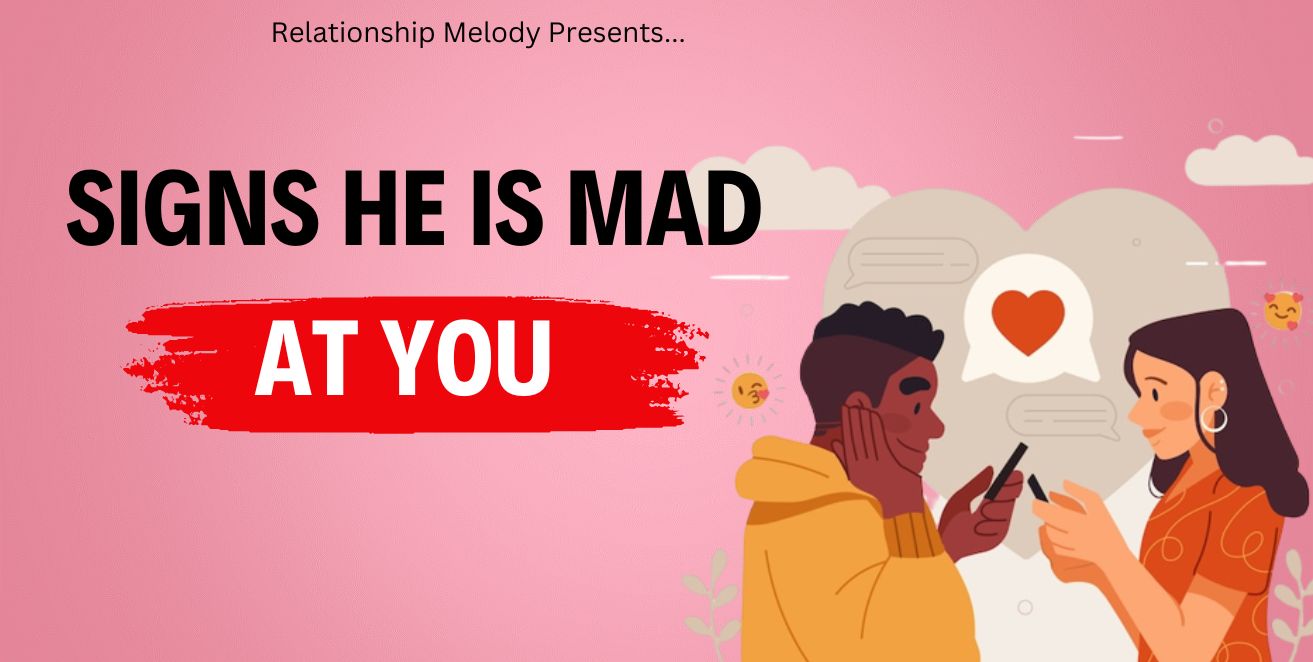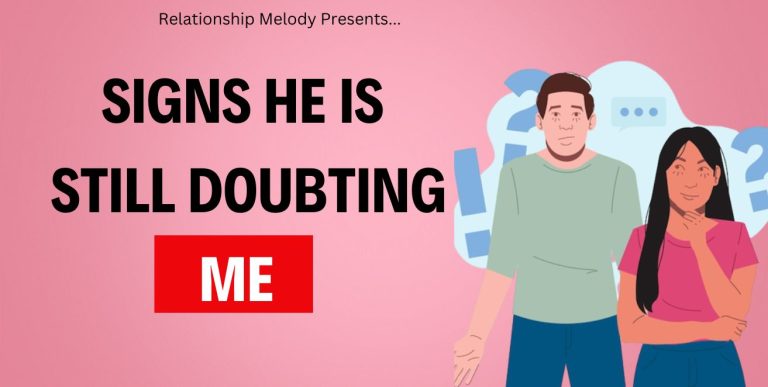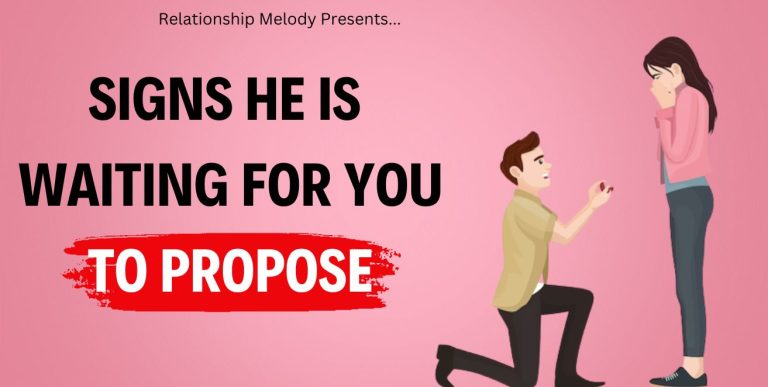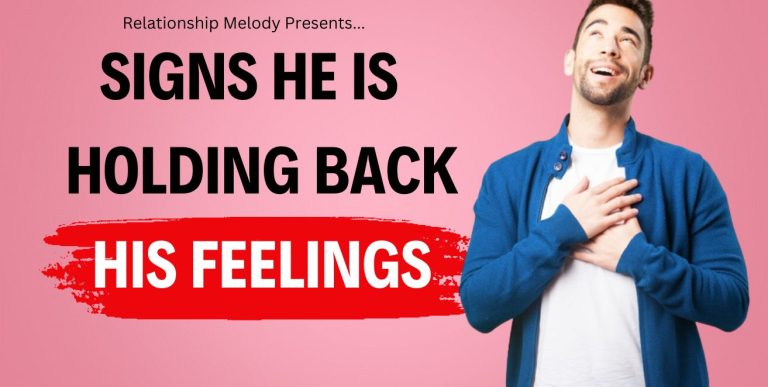25 Signs He Is Mad at You
Have you ever felt like your partner is mad at you, but they haven’t directly expressed it? It’s not always easy to tell when someone is upset with you, especially if they’re not communicating their feelings. In this post, we’ll explore 25 signs that may indicate that he is mad at you.
25 Signs He Is Mad at You
Here are 25 signs to know.
#1 Increased Distance:
When your partner becomes distant and emotionally unavailable, it might indicate that they are mad at you. They may withdraw to create space and reflect on their emotions, or they might intentionally distance themselves to convey their anger indirectly. This behavior can be a defense mechanism or a way of asserting their displeasure.
#2 Cold or Monotonous Conversations:
If your partner engages in conversations with a lack of warmth or enthusiasm, it could suggest underlying resentment. Their tone may become detached, their responses brief, and their engagement minimal. This change in conversational dynamics is an indication that they might be upset or holding onto negative emotions.
#3 Frequent Criticism:
Consistent criticism from your partner might be their way of expressing anger or frustration. They may find faults in your actions or choices and emphasize them more than usual. This behavior serves as an outlet for their displeasure and can create a strained atmosphere in the relationship.
#4 Passive-Aggressive Behavior:
Passive-aggressive behavior is a common sign of unresolved anger. Your partner may resort to sarcasm, subtle jabs, or giving you silent treatment as a means of expressing their displeasure indirectly. They might avoid confrontation but still make their anger apparent through these passive-aggressive actions.
#5 Reduced Physical Affection:
When there is a noticeable decrease in physical intimacy, such as hugging, kissing, or holding hands, it can be an indication that your partner is mad at you. Physical affection requires a level of emotional connection, and the decline in these gestures may signify emotional withdrawal and resentment.
#6 Avoidance of Eye Contact:
Eye contact is a fundamental aspect of human communication, and avoiding it can be a sign of discomfort or anger. When your partner intentionally avoids looking you in the eyes during conversations or interactions, it suggests that they may be upset and find it difficult to confront you directly.
#7 Lack of Interest:
If your partner suddenly loses interest in your activities or hobbies that they previously enjoyed or showed curiosity in, it could be a sign of underlying anger. They may no longer engage in discussions about your interests or participate in shared activities, indicating a disconnection caused by unresolved emotions.
#8 Decreased Quality Time:
A sudden decline in the amount of quality time spent together can indicate that your partner is mad at you. They may choose to prioritize other commitments or intentionally create distance by reducing the opportunities for shared experiences. This decrease in quality time can lead to a sense of isolation and further strain the relationship.
#9 Unresponsive to Your Needs:
When your partner consistently dismisses your requests or neglects your needs, it may be an indicator of resentment. They may purposely avoid accommodating your desires or fail to provide the support you expect, reflecting their underlying anger and a lack of willingness to engage positively.
#10 Increased Irritability:
If your partner exhibits frequent mood swings, easily gets irritated, or overreacts to minor issues, it might signify unresolved anger. Their heightened sensitivity and short temper can be an expression of pent-up frustration that surfaces in everyday interactions.
#11 Extended Silent Periods:
When your partner becomes unusually quiet and avoids initiating conversations, it could be a sign of underlying anger. They may choose silence as a way of expressing their displeasure or withdrawing from communication to avoid confrontations. These extended silent periods can create tension and a communication barrier in the relationship.
#12 Withholding Affection or Support:
Intentionally withholding affection, such as hugs, kisses, or emotional support, is a common sign of anger. Your partner may deny you the emotional connection or validation you seek as a way of expressing their resentment. This behavior can create emotional distance and strain the relationship further.
#13 Lack of Engagement:
If your partner shows disinterest in your life events, no longer asks about your day, or fails to engage in meaningful conversations, it might suggest that they are upset. They may display a lack of curiosity or emotional investment in your well-being, signalling their anger and detachment.
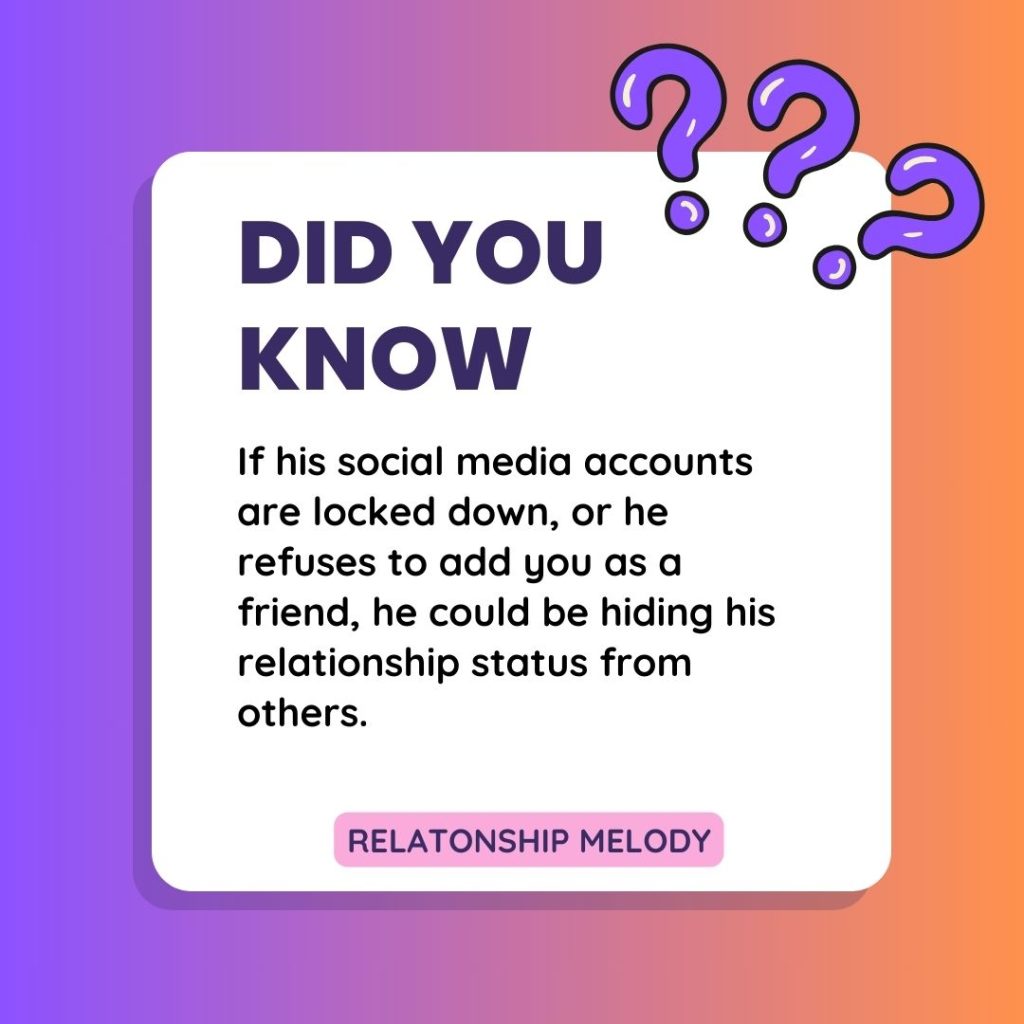
#14 Stonewalling:
Stonewalling refers to your partner’s refusal to engage in discussions or shutting down communication altogether. They may become emotionally unavailable, dismissive, or unresponsive when you try to address the issues. This behavior serves as a defense mechanism and can leave you feeling unheard and frustrated.
#15 Disrupted Sleep Patterns:
Anger and stress can disrupt sleep patterns, leading to difficulty falling asleep, frequent waking during the night, or insomnia. If your partner experiences sleep disturbances without any apparent cause, it might be a manifestation of their underlying anger and emotional turmoil.
#16 Increased Absentmindedness:
When your partner’s mind is preoccupied with anger or resentment, they may become more forgetful or absentminded. They may overlook important details, neglect responsibilities, or struggle to focus on the tasks at hand.
This absentminded behavior reflects their emotional state and can impact their overall presence in the relationship.
#17 Unusual Amount of Criticism:
If your partner starts excessively criticizing your actions, appearance, or decisions, it may indicate their underlying anger. They may nitpick or magnify small issues, using criticism as a way to express their dissatisfaction with you or the relationship.
#18 Change in Physical Appearance:
A sudden change in your partner’s grooming habits or neglect of personal hygiene can be an indication of emotional distress. When someone is angry or upset, they may become less attentive to their physical appearance as their focus shifts to processing their emotions.
#19 Lack of Support:
If your partner stops offering encouragement, fails to provide emotional support, or becomes unsupportive of your goals and aspirations, it could be a sign of anger. They may withdraw their usual encouragement and positive reinforcement as a way of expressing their discontentment.
#20 Unwillingness to Compromise:
When your partner becomes stubborn and resistant to finding common ground or compromising on issues, it may imply anger. They may refuse to consider alternative viewpoints, dismiss your suggestions, or insist on having things their way, highlighting their emotional resistance.
#21 Excessive Sarcasm:
Increased use of sarcastic remarks or snarky comments can indicate anger masked under humor. Your partner may resort to sarcasm as a means of passive-aggressively expressing their dissatisfaction or to indirectly convey their displeasure.
#22 Decline in Appreciation:
Your partner may stop expressing gratitude or acknowledging your efforts when they’re upset. They might overlook your contributions or take them for granted, failing to show appreciation for your actions and gestures.
#23 Increased Argumentativeness:
If your partner engages in frequent arguments over trivial matters or finds reasons to disagree and engage in conflict, it can be a sign that they are harboring anger. Their heightened argumentativeness might be an outlet for their unresolved emotions.
#24 Change in Communication Patterns:
When your partner exhibits alterations in their texting habits, such as responding less frequently, taking longer to reply, or reducing communication altogether, it might suggest something is amiss. Changes in communication patterns can indicate their displeasure and emotional distance.
#25 Lack of Future Planning:
If your partner avoids discussing or making plans for the future, it could indicate their anger. They may withhold commitments or refuse to engage in conversations about future goals and aspirations, symbolizing their uncertainty or discontentment within the relationship.
Read more: Signs He Is Married Or In A Relationship.
Conclusion:
In conclusion, if you’re experiencing several of these signs, he may be mad at you. However, it’s important to communicate with your partner and try to understand what’s causing the issue.
Avoid jumping to conclusions or making assumptions, as this can create more tension and misunderstandings in the relationship. Instead, try to have an open and honest conversation with your partner about how you’re feeling and what you can both do to improve the situation.
Remember that a healthy relationship requires effort and communication from both partners. If you’re unable to resolve the issue on your own, consider seeking the help of a couples therapist or counselor to work through the challenges together.
Liked Our Article?
Our Patreon link: https://www.patreon.com/RelationshipMelody

Welcome to Relationship Melody! Our website is dedicated to all things on relationships, dating, and love! We are passionate about helping you navigate the ups and downs of love, and our goal is to provide you with valuable insights and information that will make your journey toward a fulfilling relationship smoother and more enjoyable.

